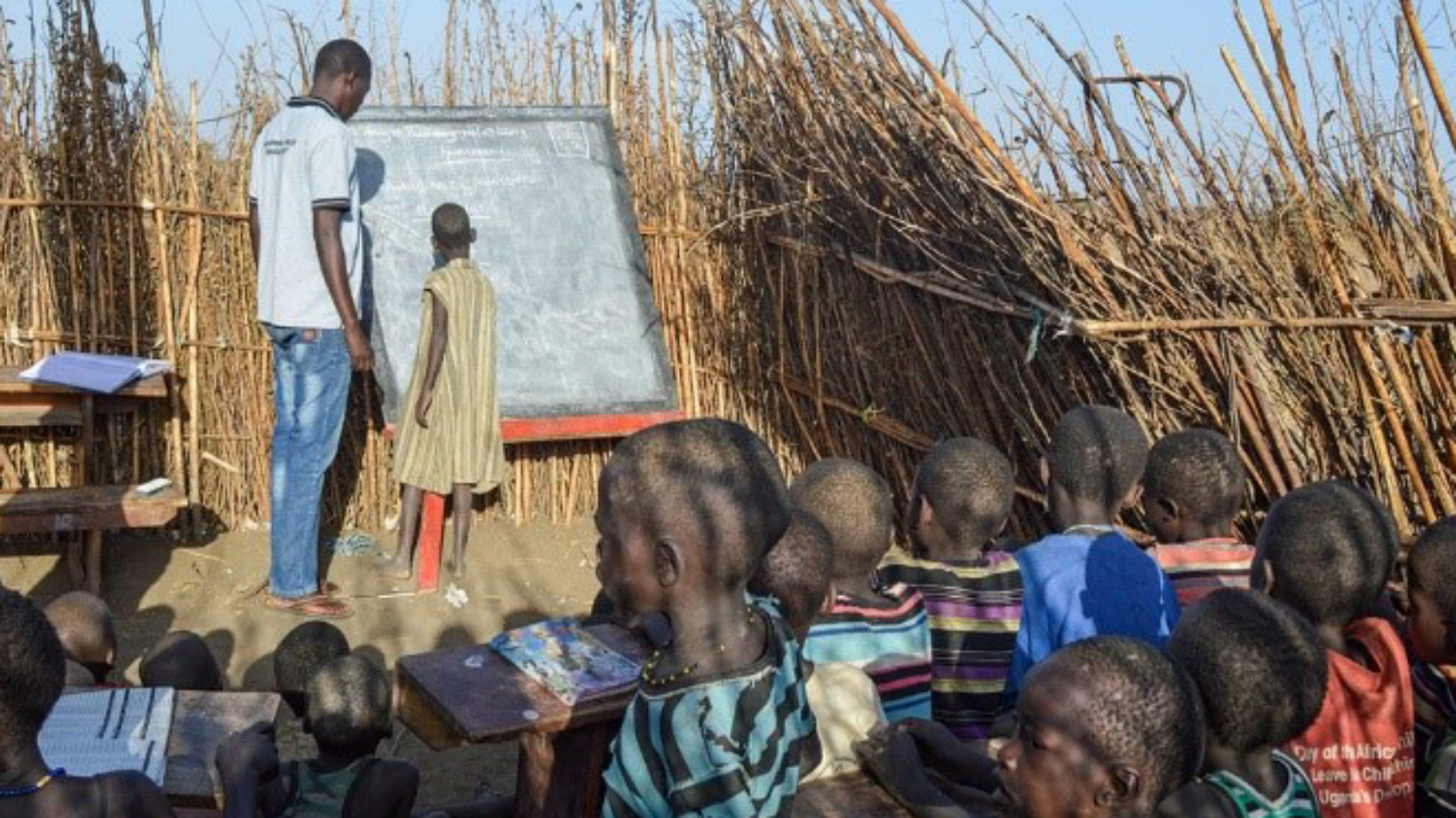
Michael Lokopir teaches at Moroto KDA Primary School. One of Lokopir’s students, Henry Ongom, 9, stands beside Lokopir as he reads aloud
Along with that refusal came a disdain for formal education – another practice that the Karamojong felt was a form of conscription.
Decades later, the same pen was ceremoniously unearthed to acknowledge that the community needed education. Even so, the majority of children in the Karamoja region, a vast area in northeastern Uganda with little infrastructure, don’t attend primary school. Just 2% of children in Kotido, the district where the pen was unearthed, attend secondary school, according to UNICEF data. The overall literacy rate for the region is 25%.
In 1998, the Ugandan government began a program called Alternative Basic Education for Karamoja (ABEK) to hold classes where children graze their family’s livestock and perform other tasks such as cooking and tending to younger siblings. Often, those classrooms are set up beneath trees.
The ABEK program has been partly successful, says Paul Oputa, the education officer for Moroto district on the eastern edge of the Karamoja region. Some parents send their children because the makeshift schools provide meals through the World Food Programme and others because the children can attend classes without neglecting their cattle-herding tasks.
Some children have gone on to university, Oputa says, noting that the district’s human resource officer and agricultural officer were both educated in the ABEK program.
Four years ago, a new initiative in which girls receive goats was launched as an incentive for those girls to attend school. Goats are considered a form of wealth in the Karamoja region. As long as their families recognize that the goats they’re raising will bring in money, the girls can take classes. When a goat reproduces, the kid is passed along to another girl.
So far, the program has given out 2,000 goats to girls, says Pamella Bella Nyamutoka Katooro, acting regional director in Africa for the International Institute of Rural Reconstruction, the development organization which implements the program.